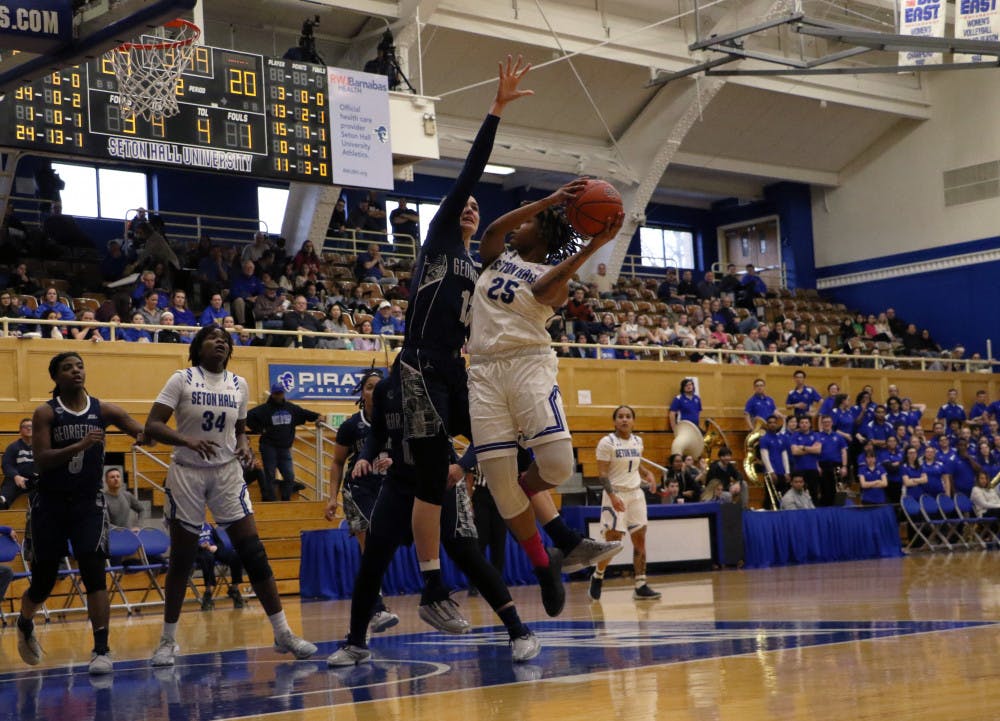In addition to the programs Counseling and Psychological Services has provided in the past, it continues to expand its resources by developing other ways to reach out and help members of the campus community.
The CAPS center is a part Student Affairs and has been accessible for decades, with its mission to "foster the psychological health and well-being of our students in order to enable them to thrive, develop and achieve academic success."
Director Dr. Katherine Evans oversees the program and its experienced staff.
"All of our staff psychologists have a Ph.D. in psychology and are either licensed or working hard for their license in New Jersey," Evans said. "Together, we seek out students who come in to our offices with problems, concerns and challenges of a variety."
Dr. Priti Shah, a staff psychologist and the outreach coordinator, says the center offers its services to all Seton Hall students and faculty free of charge.
"We offer individual counseling, group counseling and a lot psych education," Shah said.
One of the new opportunities made available this year by CAPS is a yoga group coordinated by staff psychologist Dr. Jude M. Uy.
"I got into yoga from one of my clients who found it very helpful in terms of managing stress," Uy said. "I have been really diligent with it and I found it really helpful in terms of managing my own stress and anxieties, so I presented the program to Dr. Evans who spoke to Dr. Shah and together we brought it to the campus."
The yoga group is held on Fridays at 4 p.m. at the Atrium or at the Green in the spring.
Other programs offered by the center include a group for incoming freshmen in the fall called "Transitions," which assists students having a bumpy start to the new school year and need extra support. Also there are services particularly for athletes offered by staff psychologist Dr. Sandra Ackerman.
In addition, the center continues to expand on its existing services such as group therapy.
"I have really tried to make the group program bigger and to provide a lot more options to the students," staff psychologist Dr. Carly Mayer said.
For students interested in getting involved or informed about the center's work, there are resources growing for that as well.
"I am starting an Active Minds chapter on campus," Shah said. "It is a national organization with chapters across many different universities. I have been working with student leaders to establish one at Seton Hall. It is a great way to reduce stigma across students and to let people know that it is not a bad thing to talk in terms of mental help and getting help."
CAPS also hosts several screenings on campus around issues touched upon by national university counseling centers, with an upcoming screening event for eating disorders planned for later this month.
Students and faculty also have access to the center's online video series called "What's up, Doc?", where the community's questions regarding mental health and wellness are answered.
As for whether the center is an asset to the student body, the proof is in the numbers.
"In a given year we see close to 550 individual students coming in because they need to talk with an individual therapist," Evans said. "We see students for more than 2,000 sessions a year."
The CAPS Center is located on the second floor of Mooney Hall. Its normal hours of operation are from 9 a.m. to 5 p.m., Monday through Friday.
Natalie Resbisz can be contacted at natalie.resbisz@student. shu.edu





